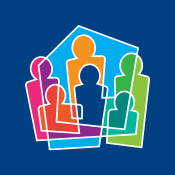Navigating Guilt/Shame: A Guide To The Core Issues Of Adoption
Adoption is a profound, meaningful event that shapes the future of everyone it touches. At its core, it's a testament to love, sacrifice, and compassion. However, like any profound life event, the adoption process can stir up complex emotions that ripple through the lives of people who have been adopted, adoptive parents, and birth parents.
In this blog post, we will explore these emotions that can weigh on the hearts of the adoption triad – the individuals who have been adopted, adoptive parents, and birth parents. To get the full picture of how guilt/shame impacts that adoption triad and ways to combat it, download our full guide, How the Core Issue of Guilt/Shame Impacts the Entire Adoption Constellation, here.
Prioritizing People-First Language In Adoption
In adoption, using people-first language is essential. Instead of solely using the term 'adoptee,' we also refer to them as 'individuals/people who have been adopted.' This language choice emphasizes their personhood and avoids unintentional dehumanization.
By being mindful of this language, we promote respect and inclusivity. Adoption is a significant part of their story, but it does not define them entirely. They are individuals with their own unique experiences, dreams, and identities beyond their adoption status.
With this in mind, let’s dive into the third core issue of adoption: guilt/shame.
The Lasting Effects of Guilt/Shame on the Adoption Triad
Guilt and shame, the third of the seven core issues in adoption, can manifest in many ways, leaving a significant mark on the lives of the person who has been adopted, their adoptive family, and the birth parents.
Individuals Who Have Been Adopted
People who have been adopted may grapple with a range of guilt-laden feelings. They might feel intrusive for seeking their roots by making contact with their birth family, 'disloyal' to their adoptive family, or even selfish for considering reaching out to their birth family. These emotions are normative and reflective of the profound societal misconceptions and expectations placed upon them.
Adoptive Parents
Adoptive parents often feel a constant sense of responsibility. They might struggle with feelings of inadequacy or guilt, even about the happiness they experience, worrying that it comes at the expense of the birth parents' loss.
Birth Parents
The decision to create an adoption plan often comes with a sense of responsibility that can lead to feelings of shame for birth parents. This is sometimes made worse by society's judgment and the stigma some people internalize, resulting in guilt that can be hard to shake off.
Strategies to Navigate Guilt & Shame in the Adoption Triad
An effective strategy for managing guilt and shame revolves around mindfulness and empathy. It entails building a supportive network and seeking professional help when necessary. For people who have been adopted, understanding and acknowledging the complexities of their emotions allow for self-healing. For adoptive parents, offering their child the support to explore their roots openly and without judgment calms the waves of guilt. And for birth parents, finding solidarity in shared experiences fosters an environment of acceptance and renewed respect for the choice they've made.
Individuals Who Have Been Adopted
Exploring one's adoption story is instrumental in managing guilt and shame. Open discussions, whether with family, friends, or mental health professionals, can illuminate the roots of these emotions and offer paths to overcome them.
Adoptive Parents
By creating a secure and open environment for the child who has been adopted, adoptive parents lay the foundation for healthy discussions around adoption. Acting as a bridge to the child's birth heritage can be a significant step in dismantling any feelings of separation, guilt, or shame. Plus, engaging in support groups or seeking counseling can be a powerful tool in managing these emotions.
Birth Parents
Societal stigmas and mindsets can often perpetuate feelings of guilt and shame in birth parents. It's important for them to recognize that their decision was a selfless act of love, not one to be looked down upon. Organizations like NCHS provide individuals who have walked the path of adoption a compassionate space to share experiences and realize the depth of their decisions without judgment.
Adoption is rooted in complex emotions, but with understanding, open dialogues, and the pursuit of healing, guilt and shame in the adoption triad can be processed and transformed into productive emotions that empower all parties involved.
Our guide, "How the Core Issue of Guilt/Shame Impacts the Entire Adoption Constellation," is your key to unlocking a deeper understanding of guilt and shame. Packed with actionable advice and insights, this resource is designed to strengthen your ability to support every member of the adoption triad. Download your copy now!
Related Blogs
The Role of Mentors in Providing Support for Adoption & Guardianship Families
Am I Ready for a Baby?
Helpful Links
© 2026 Nebraska Children’s Home Society. Site by Red Branch Media, Inc.


